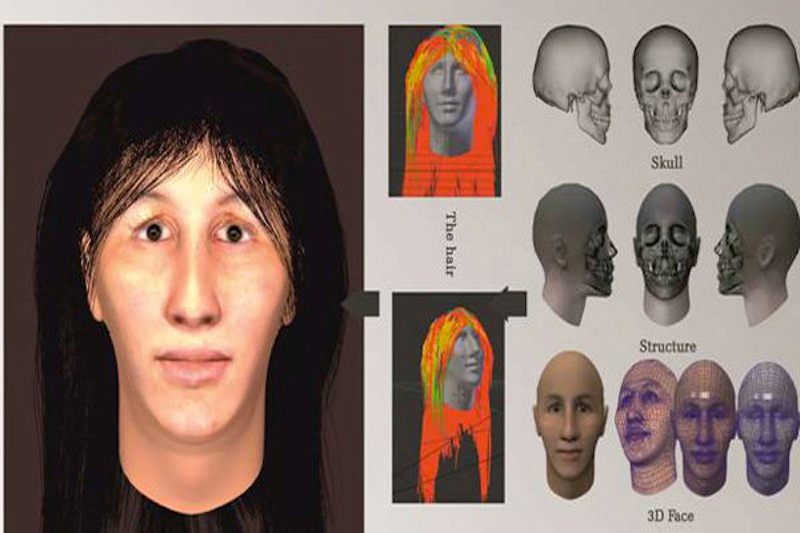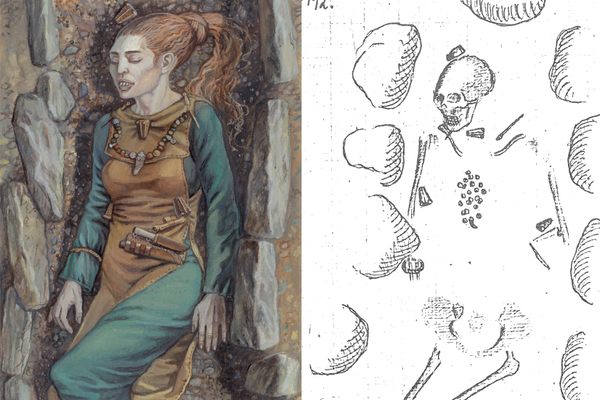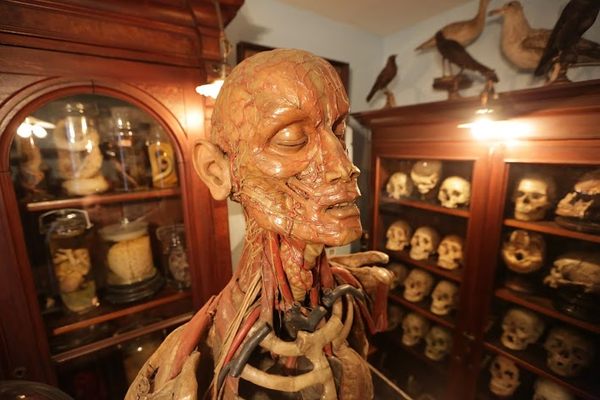A Computer Put A Face On A 7,000 Year-Old Woman

Fatimah Ramone? (Photo: Mohammad Reza Rokni, Archaeology Research Center)
What does a 7,000 year-old woman look like?
According to Iranian archaeologists, a little bit like a lost Ramone.
For reasons both political and natural, Iran is one of the most challenging places in the world to conduct archaeological excavations, which is unfortunate because the country is rich with ancient history waiting just beneath the surface. In fact, there is so much ancient history in the country waiting to be discovered, that in November of last year, an archaeology student found a 7,000 year-old woman’s skull buried next to a wastewater plant.
Then they used computers to put her face back on.
As reported over at Iran’s Mehr News Agency (which, full disclosure, is literally operated by the Islamic Ideology Dissemination Organization) and Archeology magazine, archaeology student Mahsa Vahabi was digging around on some land near the Tehran Water and Wastewater Company when she found some ancient pottery. Judging by the remains and the supine burial position, they determined that the remains belonged to a woman belonging to a lost, 7,000 year-old culture.
Much of the archaeological wealth in eastern Iran dates back 5,000 years when the region was part of the long trade road between ancient Mesopotamia and points farther East, but the skeleton found on Mowlavi Street in Tehran is thought to date back even further. Researchers believe the ancient woman was a traveler from the ancient city of Shahr-e Rey (known today simply as Rey), who was simply stopping in the area.

Soon to be a museum. (Photo: Islamic Republic News Agency)
Enter Mohammad Reza Rokni of Iran’s Archeology Research Center. Rokni wanted to know more about this new mystery woman and set out about reconstructing her in a computer. As he told Mehr News,
“The model was developed drawing upon the supine position of the skeleton to represent its true position when interred; to reconstruct the face we added a digital version of missing parts mounted on the 3D model; the prepared model was pinpointed in 11 points in face on eyes, nose, ears, chicks, lips, and chin, and then the digital texturing filled these pinpoints to give us a clear image of the face,”
Putting skin back on the bones is the easy part (they do it on the Fox show Bones almost every episode). Things got a little trickier with the long-since-disintegrated hair the ancient woman might have had. Rokni freely admits that the remade woman’s hair color and length was a simple matter of taste, however it wasn’t a complete guess. Using images found on pottery from the Cheshmeh Ali archaeological site (an ancient natural spring where people would relax, and merchants would wash their carpets), Rokni did his best to guesstimate what a standard hairstyle would have looked like at the time.
The site where the woman’s remains were found is now being preserved to be turned into a museum.












Follow us on Twitter to get the latest on the world's hidden wonders.
Like us on Facebook to get the latest on the world's hidden wonders.
Follow us on Twitter Like us on Facebook